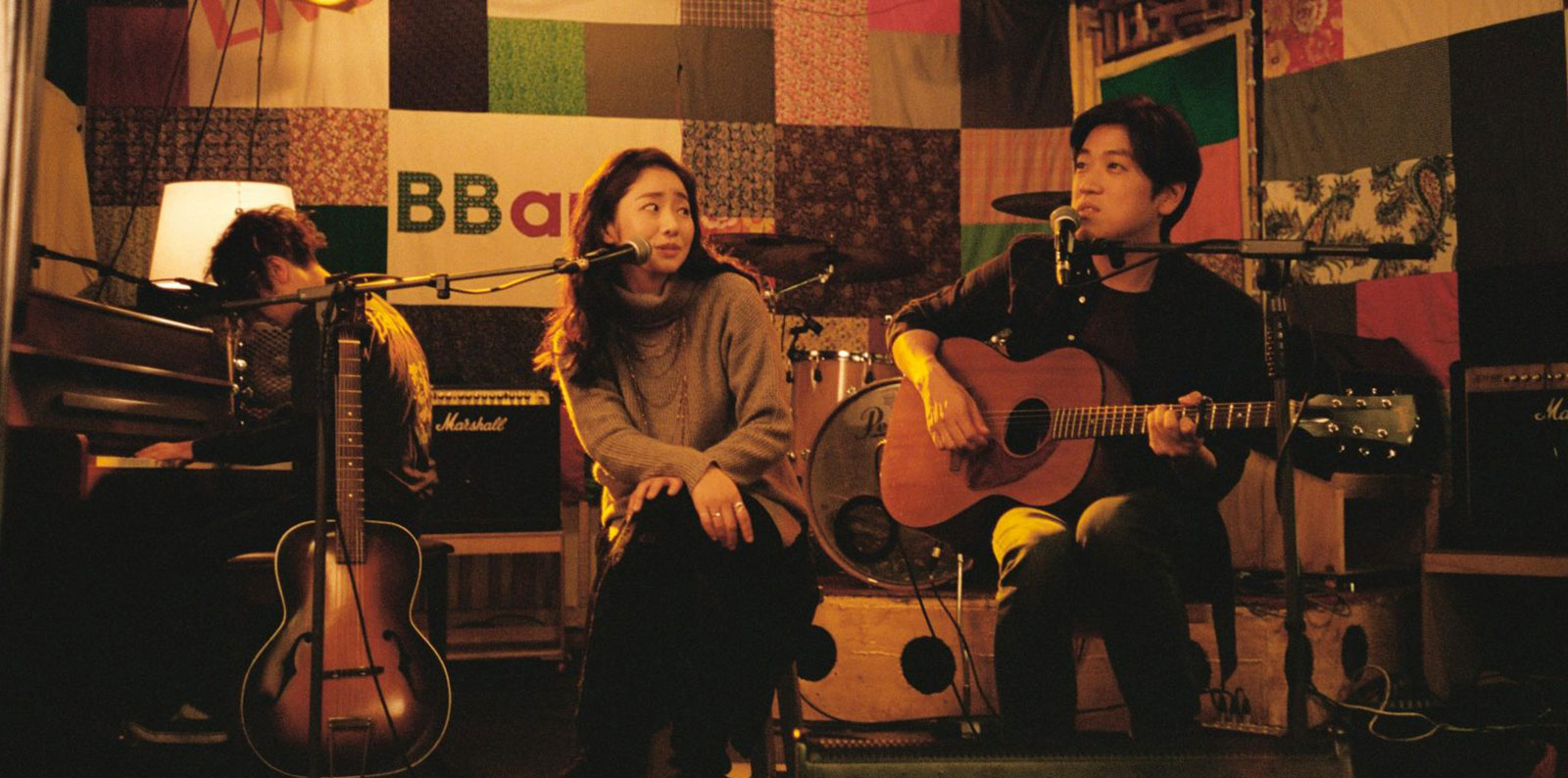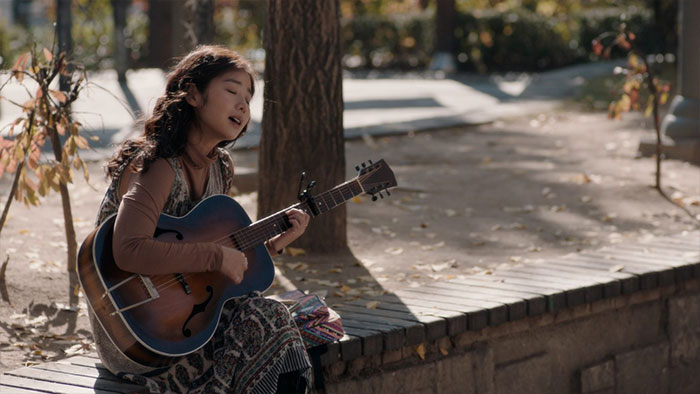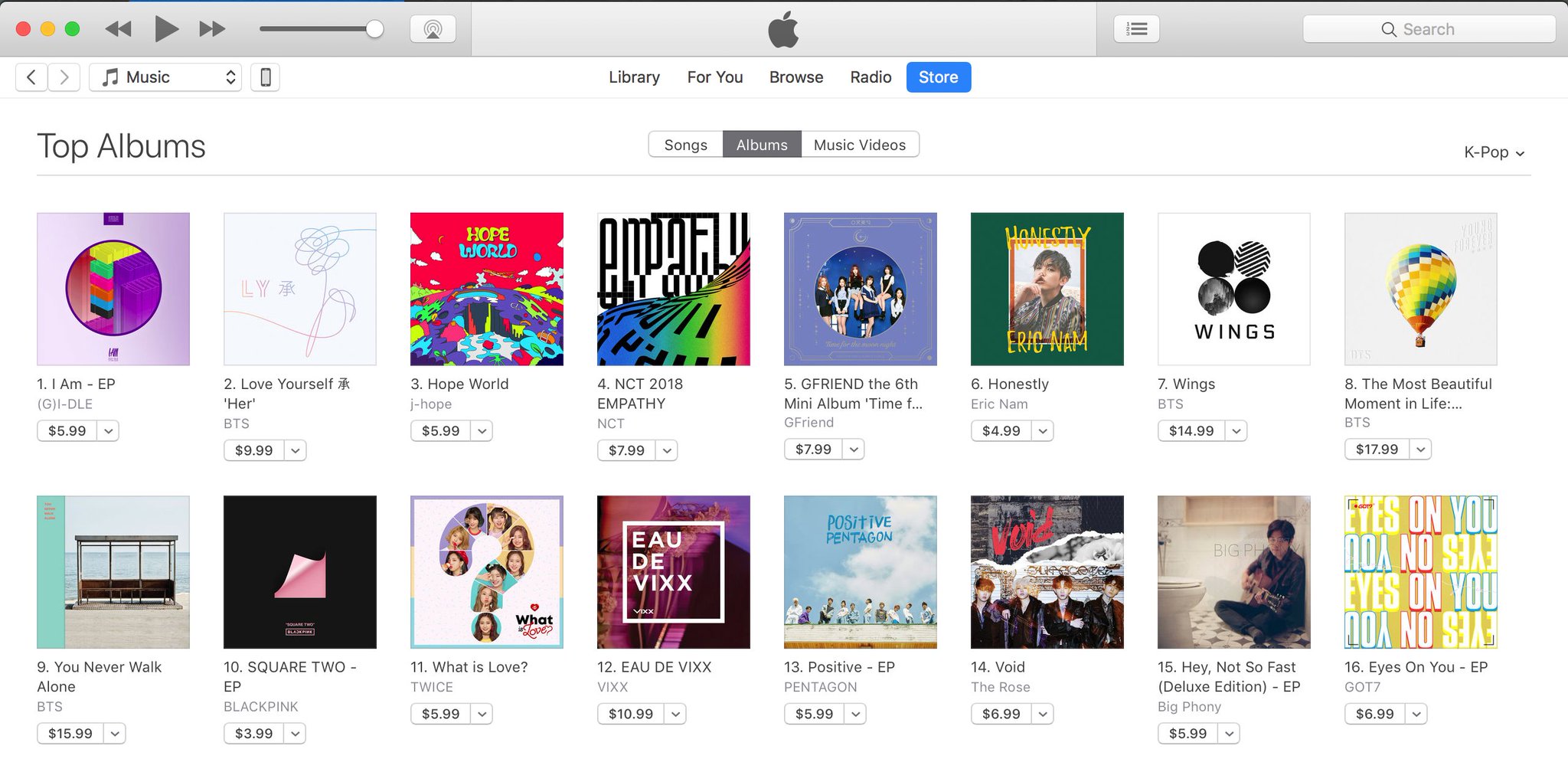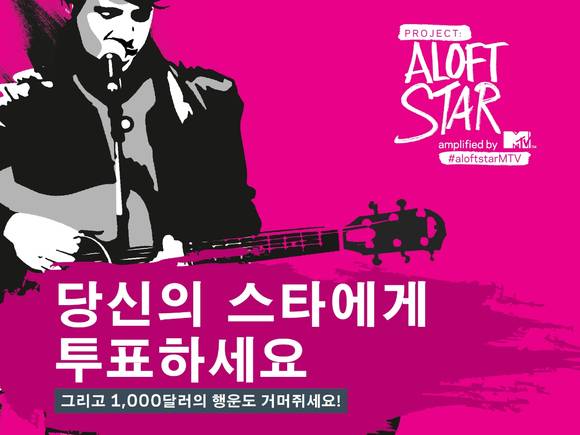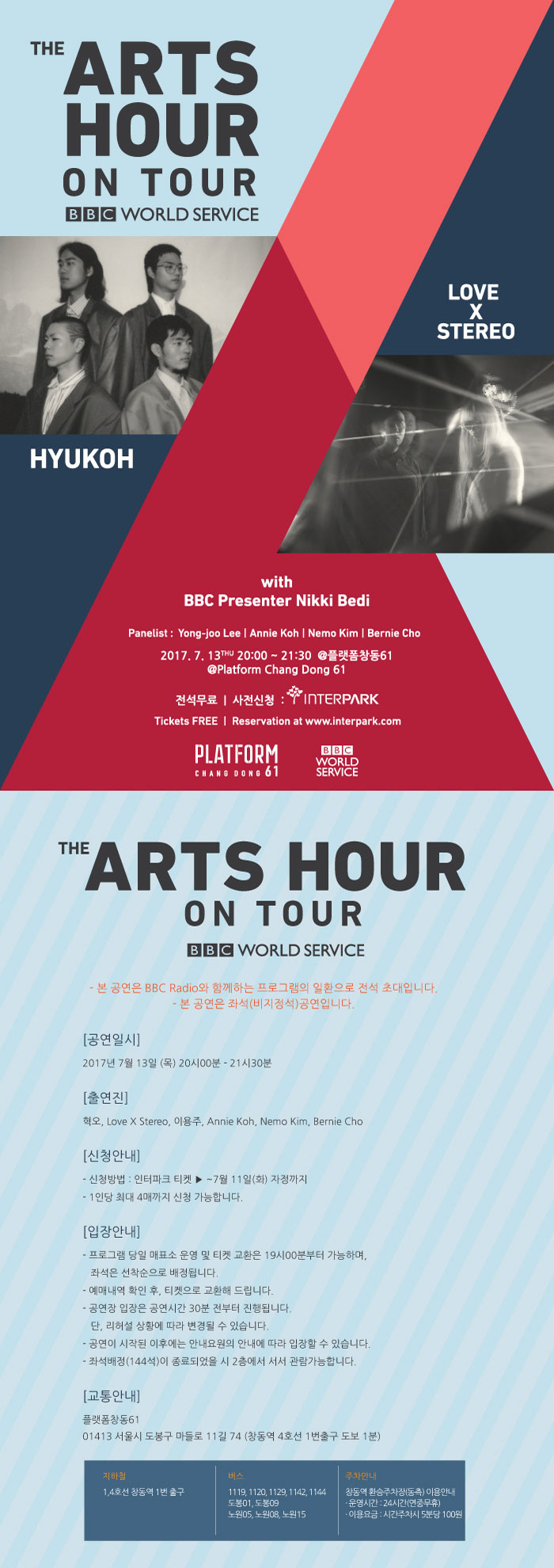South China Morning Post : China’s got talent : the young musicians trying to make it big in the West
 Thursday, June 21, 2018 at 10:46AM |
Thursday, June 21, 2018 at 10:46AM |  DFSB Kollective
DFSB Kollective 
London-based indie rock band Gengahr perform at The Great Escape Festival, Brighton, Britain, in May. Picture: The Great EscapeCould Faye Wong’s daughter Leah Dou become the first successful East-to-West crossover artist?
[UK/CHINA June 21st 2018] Queens Hotel Brighton, on Britain’s south coast, is the sort of genteel seafront property more suited to afternoon tea than the launch of international rock careers. But each spring, its basement Sandringham Suite bar is given over to three days of raucous concerts from aspiring new bands and singers from all corners of the world.
For the past 11 years, the bar’s improvised stage, illuminated only by an emergency exit sign and a single small spotlight, has hosted everything from Dutch ambient house performers and Norwegian folk singers to Japanese punk bands and South African rap crews. All, to greater or lesser degrees of enthusiasm, have paraded their wares to the European music industry’s most important talent spotters, who gather in the city for the annual Great Escape Festival, Britain’s largest showcase for new music.
Every non-native performer arrives with their eyes on the same prize – to transcend linguistic differences and cross over into the mainstream English-language pop market, where music’s biggest riches are to be found. And if the chatter among industry bigwigs at this year’s event is anything to go by, that market may soon be hearing the music of more artists from China.
Soon perhaps … but not yet: just one Chinese artist, 21-year-old Dou Jingtong, has made it onto the Great Escape 2018 bill, the country having been eclipsed, as usual, by pop-savvy Japan and South Korea, with each represented by four acts.
Nevertheless, Caralinda Booth, a veteran scout for Universal Music in China and a promoter, is “totally optimistic” about the future. “In the bushes, stirring in the undergrowth, there’s an awful lot of new, young generation Chinese making really interesting music,” she says.
Many Chinese artists have dipped their toes into Western pop waters with little success. From Andy Lau Tak-wah to Jason Zhang, they have trekked overseas and filled moderate venues with overseas-Chinese fans without ever troubling the charts. But the runaway growth of music-related earnings in China over the past few years has given Western labels and promoters new impetus to cash in. The most recent figures from the International Federation of the Phonographic Industry, an organisation that represents the interests of the music industry worldwide, show an astonishing rise in music-related income. Revenue from recorded music in China soared 35.3 per cent to US$292 million in 2017, lifting China to 10th position globally.
That was mostly the result of Chinese authorities taking piracy more seriously, introducing licensing measures that cut the proportion of music obtained illegally in the country to 74 per cent of total music consumption, from 97.5 per cent in 2010. As a consequence, online streaming services have been able to flourish, accounting for a higher proportion of music-related sales than in any other country. Together, Tencent’s KuGou and Kuwu, Baidu Music and NetEase Cloud Music – Spotify and Pandora do not operate in China – generated 89 per cent of turnover last year.
To be sure, the data also shows per capita spending on music is a fraction of that in the West or Japan – the world’s second-largest music market, after the United States – but it suggests there’s huge pent up demand for music in China. While Western record labels and promoters are clamouring to boost flagging sales at home by relaunching their cash-cow artists in the new market, they are also taking an interest in the country’s home-grown talent and seeking ways to market that widely.
“Every British band wants to break America and every Chinese band wants to break the West – it’s the same thing,” says Geoff Meall, of British artist agency Coda, who has represented British rock giants Muse and American emo favourites Paramore, and is now turning his attention to Asian bands. “As long as there’s the desire and the international push – and there’s money, there’s lots of money in Chinese entertainment – someone is bound to spend the money on the right artist in a way that the West will embrace.”
"I feel that, with my generation, there are a lot of kids who grew up in the same environment as me, which was the international-school environment, where we are sort of in between Western and Eastern culture [...] there’s going to be more and more of us writing in English for that reason" - Leah Dou
As such, Dou’s show at the Queens Hotel has been one of the most anticipated at this year’s Great Escape. Dressed all in black and – in a nod to her mother’s eccentricities – with a black line tattooed down her neck from her bottom lip, the school dropout has never had to tour at home because she has always been booked for huge festivals. The last time she was in Britain, she played a four-date run supporting alternative pop giants Bastille, including one night at the cavernous O2 in London, the world’s most-booked venue. The Brighton gig is the smallest she has ever played.
She is convinced, however, that the time is ripe for Chinese artists, of a certain kind, to break out of their home market.
“I feel that, with my generation, there are a lot of kids who grew up in the same environment as me, which was the international-school environment, where we are sort of in between Western and Eastern culture,” Dou says, just hours before the first of two shows she will play at the festival. “I feel like there’s going to be more and more of us writing in English for that reason.”South Korean act Psy performs Gangnam Style in Taksim Square, Istanbul, Turkey, in 2013. Picture: AlamHong Kong fans will know Dou from her appearance at the 2015 Clockenflap music festival in the city, but despite a couple of moderately successful singles, including 2015’s uptempo River Run, and her having won the QQ Music New Female Artist of 2016 award, she is yet to translate her talents into chart success. The reason, she suspects, is language. “It’s kind of difficult for me to connect with a Chinese audience that doesn’t speak English,” she says.
Many in the industry argue that the language barrier will be the biggest obstacle to Chinese success in the West. After all, the only non-English-language songs to have made it big in the major markets have been novelty hits.
South Korean joker Psy’s Gangnam Style of 2012 became the most streamed song in history thanks to its earworm tune and silly video. In Britain, Spanish singer Sylvia’s early 1970s hit Y Viva Espana set in train a slew of other sun-drenched exotica that cashed in on the growing trend for overseas summer holidays. Naff tracks such as Kaoma’s Lambada, in 1989, and Los del Rio’s Macarena, six years later, benefited more from soundtracking drunken vacation revelries than from any melodic integrity.
One-hit wonders, however, do not earn record companies sustainable incomes, so the pressure is on to find that special sauce that will make Chinese music pay long-term overseas. And so far, it looks like singing in English is the key.
The point is emphasised a week after the final acts at this year’s Great Escape – which featured more than 400 artists – packed up and went home. Billboard announced on May 28 that South Korean boy band BTS had become the first Asian band to top its albums chart. The band’s stock has been rising steadily in the West thanks largely to collaborations with American DJs Chainsmokers and electric house star Steve Aoki. Their music is K-pop fluff, shiny tunes and hip hop beats. But unlike other K-pop bands that have sought and failed to break into the West, BTS sing in English.
Booth agrees. She tried to cash in on the Beijing Olympics, in 2008, in her first attempt at breaking a Chinese star in the West. Her name was Sa Dingding – a folk singer, hugely successful at home, of Han Chinese and Mongol ancestry who variously performs in Mandarin, Sanskrit, Tibetan and occasionally even a self-created language. It didn’t go well, even though Sa played at London’s prestigious Royal Albert Hall.
“Because her English wasn’t great, promotion and publicity were very difficult,” Booth explains. “In terms of singing, I think we would all agree that for an artist to find a big fan base, they need to make an impact emotionally.
“If you are an African band and you sing in an African dialect but you’ve got a great rhythm, then that’s covering something. But if you’re singing a different sort of music, which is also very lyrical, it’s hard for people to get your drift if you’re singing in another language.”Singer Annie Ko, from Korean indie-dance band Love X Stereo. Picture: YouTube / Love X Stereo.To get around the language barrier, executives appear to be relying on two marketing ploys.
One is to enter the Western markets via a niche genre, where fan bases are typically more committed and willing to experiment with new artists. That is partly why many overseas artists target the Great Escape: it has an envious track record of spotting future hit makers in the most unlikely of places. An acoustic guitar-slinging Adele featured on its 2007 bill sporting a look and a sound a million miles from the R&B belters that have made her one of the biggest stars in the world. Grime artist Stormzy played one of his first headline shows at the festival in 2016, long before he was crowned the king of British rap. And local crooner Rag’n’Bone Man was a guest before his track Human (2016) made him a global name.
While the Great Escape is billed as a pan-genre showcase, its listings tend to be weighted heavily towards indie rock, modern rap and dance. It is a perfect springboard for Chinese artists, says Nina Condron, a director at international distribution company Horus Music.
“There should be a big crossover artist, but I think it’s going to happen by making inroads through niche channels – via indie, dance, hip hop,” she says. “The broader pop market is too big to penetrate yet. Start small and work up to that level.”
The second ploy is to keep foreign-language singing to a minimum. That means recording dance or rap songs.
“There’s something in instrumental, non-vocal tracks: straightaway, [Western audiences] have something they can like,” says Mathew Daniel, NetEase Cloud Music vice-president, international. “Hip hop and trap work well because they have limited lyrics and are beat heavy. Old school rap was poetic – it was the new beat poetry – but the new trap guys are just repetitive; it’s no longer poetic, it’s just impact, which makes it easy to pick up.”
"There’s a vacuum for a Chinese artist to make it internationally. We’re waiting for something that’s still missing. But it is a big question: why is it that the Chinese, 1.3 billion people all over the globe, haven’t crossed over? Is it the melody? Is it the music? We need a singer who translates across cultures" -- Geoff Meall, agent
For Booth, the key to success is even more fundamental. An artist just needs to be good. And that’s a problem, says Meall, who argues that so far, Chinese performers have failed because their idea of what makes a good song has generally been far from what will sell in the West.
He points to his experience at Sound of the Xity, an event similar to the Great Escape and held each year in Beijing. “A lot of it was f***ing awful, I’ll be honest with you,” Meall says. “It probably had something to do with how the artists had been brought up culturally. Nobody seemed to have the structure of the three- to four-minute pop song.
“Every band that we saw pretty much had too many members – extraneous violinists and trombonists. All very, very competent musicians but every single song seemed to feature a three-minute intro and a two minute outro in a nine-minute song. There was a lot of showing off how good they were but not any real idea of a pop song.”
Because China had been closed off from the West for so long, when it started opening up, music fans had no context for the new pop songs that started flooding into their CD shops, and later, onto their streaming services, says Daniel.
“Look at it like this: Japan had Ryuichi Sakamoto to bring in pop and India had Ravi Shankar, who introduced pop through his association with George Harrison, but the Chinese world only had Bruce Lee; he may be the biggest icon in hip hop but he isn’t even music.
“There’s a vacuum for a Chinese artist to make it internationally. We’re waiting for something that’s still missing. But it is a big question: why is it that the Chinese, 1.3 billion people all over the globe, haven’t crossed over? Is it the melody? Is it the music? We need a singer who translates across cultures.” Leah Dou, aka Dou Jingtong, performs during the 2018 Yin concert on January 13, 2018 in Guangzhou, Guangdong. Picture: Getty ImagesBack at the Queens Hotel Brighton, Booth says the old ways of promoting overseas bands – by playing up their foreignness – no longer apply. “Before, just by saying you had a Chinese artist, everyone was fascinated,” she says. The opening up of the music industry means “that has gone now”.
Leah Dou, aka Dou Jingtong, performs during the 2018 Yin concert on January 13, 2018 in Guangzhou, Guangdong. Picture: Getty ImagesBack at the Queens Hotel Brighton, Booth says the old ways of promoting overseas bands – by playing up their foreignness – no longer apply. “Before, just by saying you had a Chinese artist, everyone was fascinated,” she says. The opening up of the music industry means “that has gone now”.
Nowadays she prefers to do things organically, to promote her Chinese artists on the merits of their talents. “The main thing is finding a character that’s special to them,” Booth says. “You don’t really want a Chinese version of Mariah Carey coming over. That’s never going to work. Bjork didn’t make it because she was from Iceland. She made it because she was brilliant, and being from Iceland was just part of her story.”
Dou agrees but also says that Western audiences value authenticity and for Chinese artists that means playing to their cultural strengths. To that end, she says she has begun incorporating traditional Chinese instruments into her music and says many of her contemporaries are following suit.
“If we’re being really straight about it, there’s already enough Western music in the West,” Dou says. “Chinese artists are going to have to bring something different to the table.”
https://www.scmp.com/magazines
By Mark Mccord
International Digital Distribution : DFSB Kollective [Love X Stereo]
International Festival Booking Agent : DFSB Kollective [Love X Stereo]


